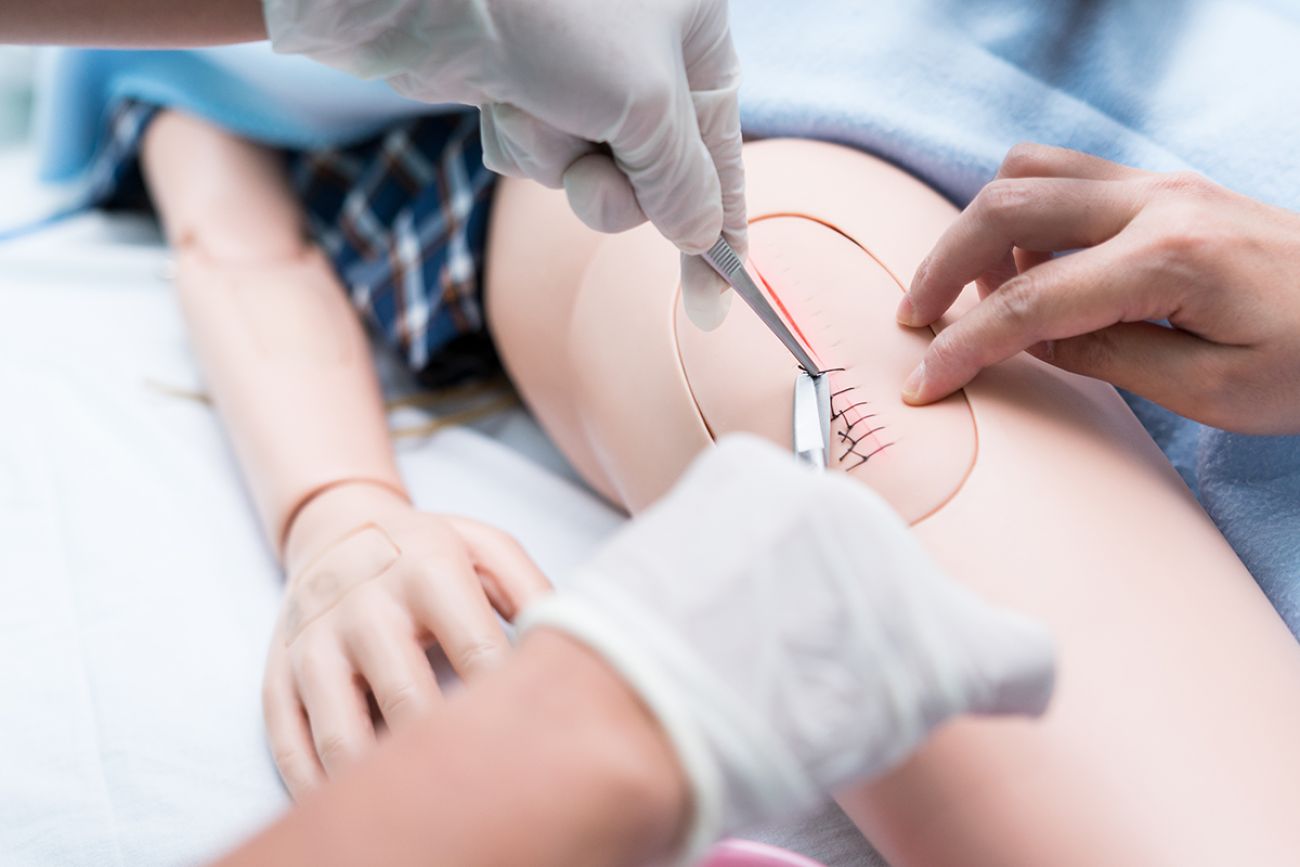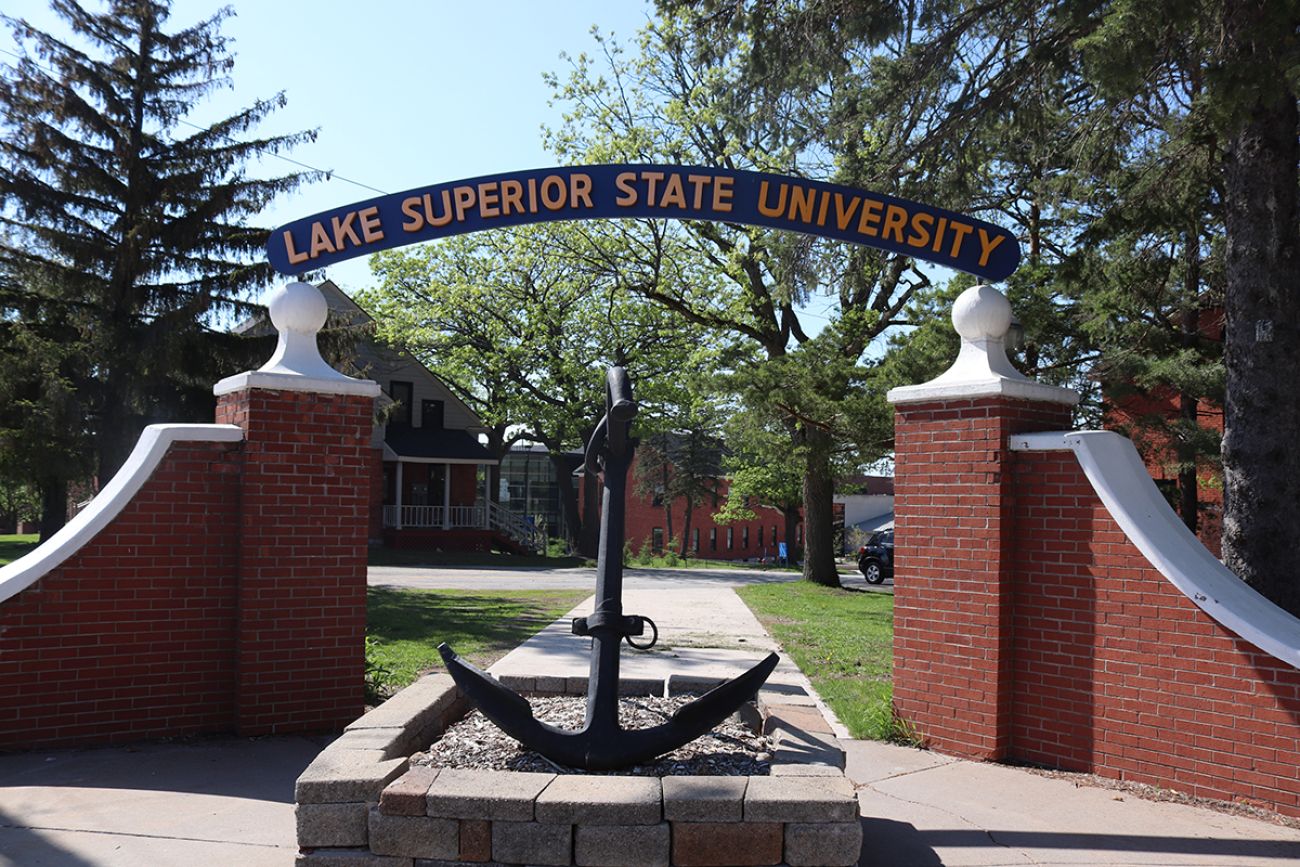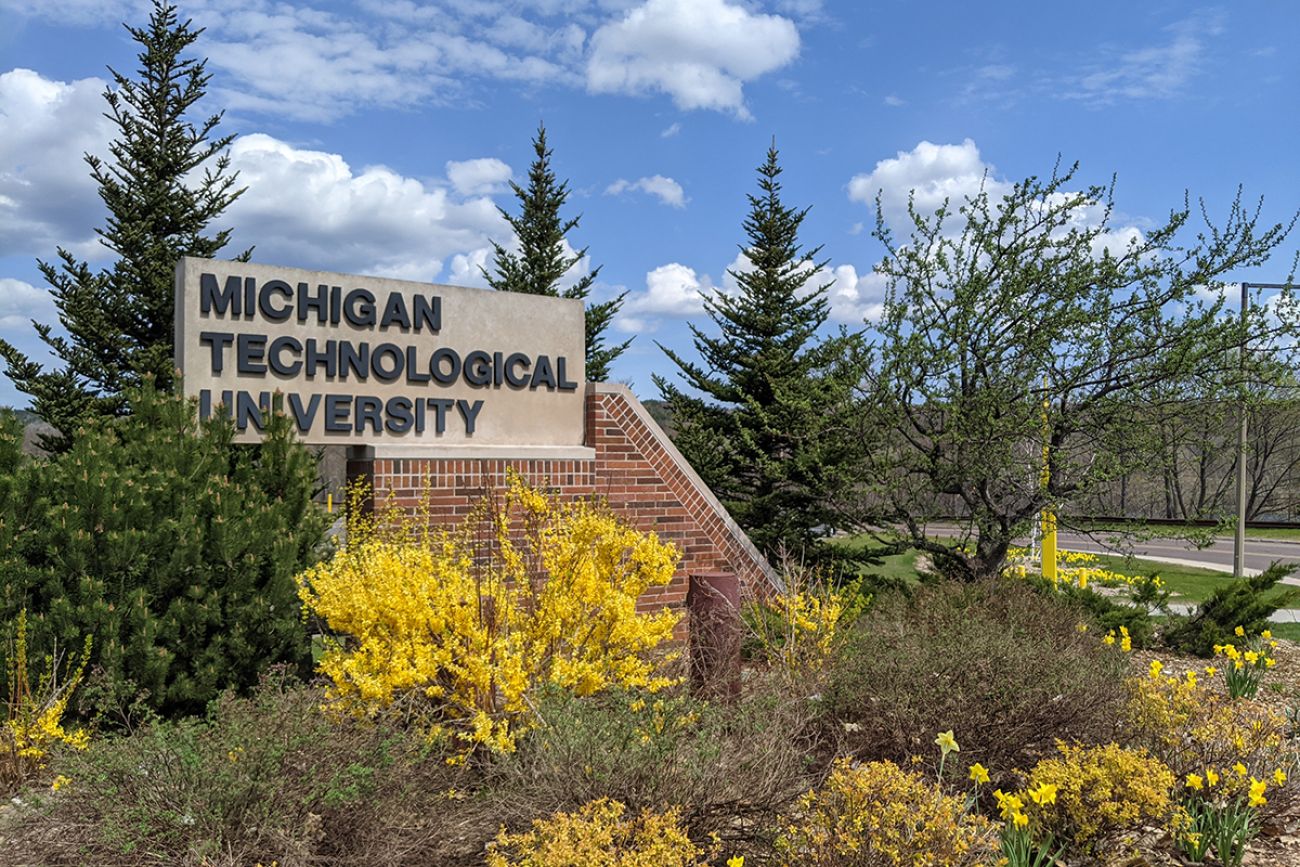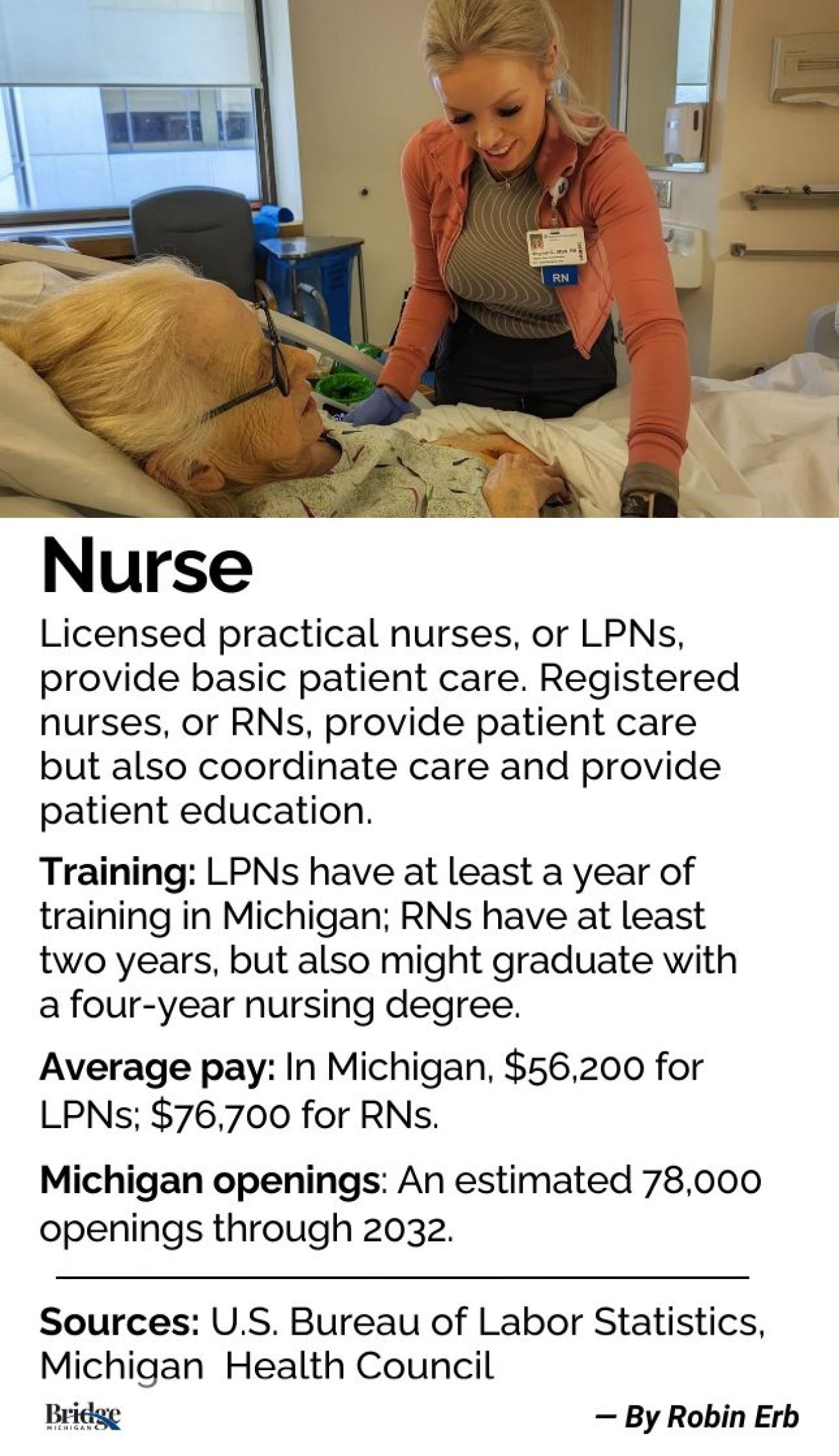In Michigan’s Upper Peninsula, universities expand nurse training options

- Michigan Tech plans to open a nursing school this fall
- The program will take in nursing students from nearby Finlandia University, which recently said it was closing
- Meanwhile, Lake Superior State University is starting a one-year certificate program to training nurses in rural healthcare
Two public universities in Michigan’s Upper Peninsula are dramatically expanding the region’s nurse training options — one as the result of the closure of the more-than-century-old Finlandia University.
In Houghton, Michigan Technological University, known for its powerhouse engineering programs, will begin training nurses this fall, launching a four-year nursing program with an expected 16 students in its first year.
And in Sault Ste. Marie, just over four hours to the east, Lake Superior State University will expand its existing program to train nurses to work in rural areas.
Related:
- Two in five Michigan nurses plan to leave their jobs, survey finds.
- Michigan hospitals lost 1,700 beds from staff shortages, seek more money
- Staffing woes foil Michigan efforts to keep residents out of nursing homes
- In Alpena, a bold effort to graduate more high-level Michigan nurses
LSSU’s one-year Rural Nurse Residency Certificate Program is offered to nurses who already have four-year nursing degrees, and it’s the first of its kind in the world, according to the university.
The program will establish an academic nurse residency program, pairing newly minted nurses who have their four-year bachelor’s degree in a one-year, online course to help them acclimate to rural nursing, said Kathy Berchem, a dean and nursing professor at Lake Superior State’s College of Health & Behavior.

The university will partner with traditional preceptors (mentors to new nurses) for about three months, to give the student extra support for the entire year. In return, the university will provide preceptors with continuing education credits that will hone their skills as preceptors, Berchem said.
The goal is to help build “confidence, competence, critical thinking, and clinical judgment” for new nurses, especially in rural healthcare.
More than in an urban setting, rural nurses often “wear many hats,” Berchem said.
For example, hospitals in large communities will typically have staff — a social work office, for example — to help connect patients with continuing medical needs to community resources as they leave the hospital. But at a rural hospital, it may be the bedside nurse delivering medical care who also must find home-care services for patients or figure out how the patient will continue to receive medication if they live in a remote area.
Especially in a rural area, said Berchem of LSSU, new nurses can get overwhelmed. And they begin looking to larger cities where they see jobs they feel are more singularly focused: “We're losing a large proportion of our graduates to bigger hospitals and bigger clinics.”
At MTU, a new nursing school
Meanwhile, the Michigan Tech eight-member board of trustees unanimously approved a new nursing school at its Friday meeting.
The program, just 16 students to start with this fall, will pick up students from across the Portage River, at Finlandia University. The private university in Hancock announced in March that it would close after more than 125 years.
Finlandia was one of three Upper Peninsula schools, along with Lake Superior State and Northern Michigan University, that offered four-year nursing degrees.
In fact, for about four decades, Finlandia has been “the sole provider” of four-year nursing graduates in the community, offering staffing for local hospitals and long-term care, according to a 19-page proposal to the University Senate at Michigan Tech.

Under a teach-out agreement between Michigan Tech and Finlandia, Finlandia students will be automatically accepted into Michigan Tech’s nursing school this fall.
But that’s a tight timeline. With just a summer to go, Tech’s proposed program must be approved by Michigan’s State Academic Affairs Officers, which will offer a peer review of the program, the Michigan Board of Nursing, which licenses nurses, and the Higher Learning Commission and Commission on Collegiate Nursing Education, which are national accrediting bodies.
The nursing program extends Tech’s focus in STEM education, said Andrew Storer, Tech’s provost and senior vice president for academic affairs.
“We had a conversation: Does nursing align with what Michigan Tech does?” he said, referring to early conversations. “It does very strongly. We have other other medical related degrees — medical lab science, kinesiology and integrative physiology.”
Tech’s entirely new program and Lake State’s new certificate are two of among many efforts created in higher education to address nursing shortages across the country.
Michigan hospital leaders have spoken repeatedly about the struggle to fill job openings, particularly for nurses, a problem that grew far worse during the pandemic. Many facilities had to pay higher wages to travel nurses to fill the void. By December, hospitals said they had been forced to take at least 1,700 beds offline across the state because of staffing constraints, according to the Michigan Health & Hospital Association.
The state was also forced to limit the number of available psychiatric beds because of the shortage of mental health care workers, including nurses. In one recent survey, two in five nurses reported they planned to leave their jobs in the next year.
In answer to those pressures and as part of a budget deal last summer, the state set aside at least $2 million for every Michigan community college to administer programs that allow them to train nurses beyond a two-year associate degree by continuing their studies on site for a four-year bachelor's degree — a preferred credential at many health systems. Among other benefits, allowing nursing students to take all four years of nursing training at a local community college may encourage more graduates to remain closer to home.
Northern Michigan University and Lake Superior State University each graduate about 40 nursing students a year, deans at those nursing schools told Bridge.
The problem, however, isn’t as much a shortage of schools in Michigan’s northernmost reaches as it is interest in the nursing field, said Kristi Adair, associate dean and director of Northern’s nursing school.
“The pandemic accelerated the shortage,” she said.

It made young people hesitant to consider a nursing career, and — when they did — it was their parents who sometimes discouraged them, she said, referring to the challenging work conditions described by nurses during the pandemic.
“They heard how hard nurses were working. They felt like the environments were dangerous,” she said of parents. “Even if their young adult was interested in nursing, sometimes the parent discouraged them (with) ‘Why would you want to do that?’ ‘Look at how they're being treated.’ ‘Look at the long hours they're working.’ ‘It's kind of dangerous.’”
She and Adair said their schools, and some nursing schools elsewhere, have open spots for nursing students.
“I don't think the solution is to have another program,” Berchem said, referring to the new school at Tech. “The solution is to get students into the spots that are available.”
Michigan workers vacancies
In this occasional series, we examine the scope of critical worker shortages in 2023, from doctors and police officers to math teachers and social workers. To view more stories in this series click here.
See what new members are saying about why they donated to Bridge Michigan:
- “In order for this information to be accurate and unbiased it must be underwritten by its readers, not by special interests.” - Larry S.
- “Not many other media sources report on the topics Bridge does.” - Susan B.
- “Your journalism is outstanding and rare these days.” - Mark S.
If you want to ensure the future of nonpartisan, nonprofit Michigan journalism, please become a member today. You, too, will be asked why you donated and maybe we'll feature your quote next time!





